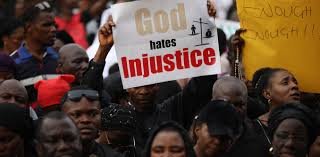The debate over the persecution of Christians in Nigeria has once again resurfaced after American journalist Bill Maher drew global attention to the brutal killings that have plagued the country for decades. His comments ignited a storm on social media, with some attempting to deny what has long been documented: the systematic targeting of Christians in Nigeria’s northern and central regions.
For more than two decades, the nation has witnessed an unbroken chain of violence fueled by jihadist groups and radicalized militias. It began with church bombings in the early 2000s, carried out by extremists who claimed to act in the name of Islam. Boko Haram’s rise in 2009 unleashed even greater terror, and today its splinter faction, Islamic State West Africa Province (ISWAP), continues to drive a campaign many observers describe as a silent genocide.
Christian watchdog organizations and human rights groups have compiled grim statistics. The International Society for Civil Liberties and Rule of Law reported in 2023 that at least 52,250 Christians had been murdered in Nigeria over a 14-year period. Global monitoring groups confirm that Nigeria now records the highest number of Christian martyrs annually, with death tolls often surpassing the rest of the world combined. Attacks have spread southwards into the Middle Belt, where Fulani herdsmen-radicalized elements among them, have razed villages, massacred farmers, and displaced millions.
Read also:
- Shettima demands permanent UN Security Council Seat for Nigeria
- Nigerian Troops eliminate 16 Boko Haram/ISWAP Terrorists in Borno midnight raid
- Nigeria Air Force to acquire 49 new Aircraft by 2026, bolstering war against terrorism
The horror is not confined to numbers. In May 2022, the lynching of Deborah Yakubu, a Christian student in Sokoto, sparked nationwide outrage after she was accused of blasphemy and murdered by a mob. That same year, St. Francis Xavier Catholic Church in Owo was attacked, leaving more than 50 worshippers dead. Across Kaduna, Plateau, Benue, and beyond, priests have been kidnapped, nuns abducted, parishioners slaughtered, and entire communities left in ruins. Catholic authorities confirmed that 23 priests were kidnapped in 2022 alone, four of whom were killed. By 2023, killings surged again, with mass graves uncovered in Plateau and Benue States.
Despite these tragedies, government response has been inconsistent. Leaders condemn violence after each massacre, yet security remains weak, perpetrators rarely face justice, and survivors live in fear. Bishop Wilfred Anagbe of Makurdi once described the situation as “nothing short of a jihad clothed in many names—terrorism, banditry, kidnappings, killer herdsmen.” His plea to the international community was stark: end the conspiracy of silence.
The killings have not gone unnoticed abroad. Former U.S. President Donald Trump in 2018 openly criticized Nigeria for failing to protect its Christian citizens. Members of the European Parliament have raised alarms about widespread religious persecution. Yet within Nigeria, attempts to downplay or deny the crisis persist, often fueled by political propaganda and religious sensitivities.
To deny these events is to insult the memories of those who died in Plateau, Southern Kaduna, Benue, Owo, Sokoto, and countless villages erased from the map. To deny is to dismiss the tears of mothers who buried their children, the silence of churches reduced to ashes, and the trauma of displaced families who may never return home.
The truth remains undeniable: Christians in Nigeria are under systematic attack. Posterity will not forgive a nation that looks away while its own citizens are slaughtered for their faith.






